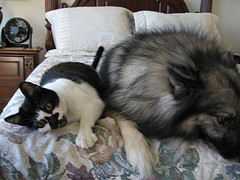Move with a Movie Review . . . GG Style
March 8, 2010 by GradingGirl
Filed under Blogging in the Classroom, Mini-Lessons
With all the spirit of the Academy Awards upon us, this week’s blog assignment will be for the students to write a movie review.
Move Us With a Movie Review
Here is what you need to include in your blog post:
Paragraph 1
Include the following: name of the film, stars of the film, basic setting ( time and place), and type of film ( comedy, adventure, drama, etc.)
Paragraph 2
Write a plot summary for the movie. Do not reveal the ending! Discuss at least 5 events and be sure to cover the entire scope of the movie except the very end.
Paragraph 3
Discuss one aspect of filmmaking. You may choose from acting, directing, editing, costume design, set design, photography, background music, or anything else you may think of. Be sure that you are specific and cite examples from the movie.
Paragraph 4
Discuss another aspect of filmmaking. You may choose from acting, direction, editing, costume design, set design, photography, background music, or anything else you may think of. Cite examples from the movie but obviously choose something different from what you discussed in the previous paragraph.
Paragraph 5
Give your overall reaction to the film as well as your opinion on the quality of the film. Last but certainly not least, include the grade you give this film based on your previous description.
Steps to Prepare for Writing This Post:
- Think about what you like and don’t like about a particular movie you have recently seen. Jot down your likes & dislikes in a free-write list.
- Next, write down as much information as you can about the movie (plot, aspect of filmmaking, etc.)
- Begin to articulate the information into your blog. Aim for about 600-700 words for the entire review.
- Save your draft and proof your work.
***Hint: Attempt to match the tone of your review with the style of the movie. For example, a humorous writing style would work well for a comedy, whereas a more serious tone would be good for writing a drama review.
Bringing Blogging to the Classrooms
February 15, 2010 by GradingGirl
Filed under Blogging in the Classroom, Mini-Lessons
11/1/2013 Note: Below describes the first year I brought blogging to the classroom. Some activities remain; some have since changed:
Last week, my students signed up for their blogs! They are excited to write their first post later this week. Here is the deets on this new blogging project we’ve embarked upon ~
WHO: 3 classes of sophomore Reading Strategies (students reading scores below grade level)
WHAT:
a. Two introductory activities (click here for GG’s activities)
b. Blogging etiquette discussion (see below)
c. Initial sign up & theme choice
d. This week = first post!!!!
WHERE: Edublogs by WordPress
WHEN: ongoing throughout this semester
WHY: to facilitate motivation and fluidity with students’ reading and writing skills.
HOW: Students will be blogging once a week.
Guidelines
When you write anything in the blog, please use the following guidelines. There are some questions so you may want to reflect on your posts.
1. Only post things that you would want everyone (in school, at home, in other countries) to know.
Ask yourself: Is this something I want everyone to see?
2. Do not share personal information.
Ask yourself: Could someone find me (in real life) based on this information?
3. Think before you post.
Ask yourself: What could be the consequences of this post?
4. Know who you’re communicating with.
Ask yourself: Who is going to look at this, and how are they going to interpret my words?
5. Consider your audience and that you’re representing Palatine High School.
Ask yourself: Do I have a good reason/purpose to do this?
6. Know how to give constructive feedback.
Ask yourself: What will I cause by writing this post?
7. Treat other people the way you want to be treated.
Ask yourself: Would I want someone to say this to me?
8. Use appropriate language and proper grammar and spelling.
Ask yourself: Would I want this post to be graded for proper grammar and spelling?
9. Only post information that you can verify is true (no gossiping).
Ask yourself: Is this inappropriate, immature or bullying?
10. Anytime you use media from another source, be sure to properly cite the creator of the original work. Otherwise, this is considered plagiarism and is reason to fail the class.
Ask yourself: Who is the original creator of this work?
Commenting Guidelines
As a blogger, you will be commenting on other people’s work regularly. Good comments:
- are constructive, but not hurtful;
- consider the author and the purpose of the post;
- are always related to the content of the post;
- include personal connections to what the author wrote;
- answer a question, or add meaningful information to the content topic;
- follow the writing process. Comments are a published piece of writing.
Blogging Terms and Conditions
- Students using blogs are expected to act safely by keeping personal information out of their posts. You agree to not post or give out your family name, password, user name, email address, home address, school name, city, country or other information that could help someone locate or contact you in person. You may share your interests, ideas and preferences.
- Students using blogs agree not to share their user name or password with anyone besides their teachers and parents. You agree to never log in as another student.
- Students using blogs are expected to treat blogspaces as classroom spaces. Speech that is inappropriate for class is not appropriate for your blog. While we encourage you to engage in debate and conversation with other bloggers, we also expect that you will conduct yourself in a manner reflective of a representative of this school.
- Student blogs are to be a forum for student expression. However, they are first and foremost a tool for learning, and as such will sometimes be constrained by the various requirements and rules of classroom teachers. Students are welcome to post on any school-appropriate subject.
- Students blogs are to be a vehicle for sharing student writing with real audiences. Most visitors to your blog who leave comments will leave respectful, helpful messages. If you receive a comment that makes you feel uncomfortable or is not respectful, tell your teacher right away. Do not respond to the comment.
- Students using blogs take good care of the computers by not downloading or installing any software without permission, and not clicking on ads or competitions.
- Students who do not abide by these terms and conditions may lose their opportunity to take part in this project.
Like, When Do I Use As?
November 27, 2009 by GradingGirl
Filed under Grammar, Mini-Lessons
“Like” must be one of the most abused words in the English language. Like, what’s up with, like, the overuse of, like, the word “like.” Like, I don’t understand how, like, people are actually, like, communicating with as many uses of the word “like.” Like, the most used word in, like, most high schools in America is “like.” Whoa, I can’t do that anymore.
I don’t know how that use of “like” actually started but I’ve been on a personal crusade to alleviate it for quite some time. I assign a speech early on during the year in which I deduct a point each time “like” is used out of proper context. Sadly, two out of 22 students earned an A on that speech this year. Beside this annoying misuse, “like” is often confused with “as” when making a comparison. This may be easier to correct. Let’s try:
Like vs. As
This looks like the dog(s) I grew up with and the cat I now own. I miss Prissy and Cindy!
Like is a preposition used for making comparisons. (Like can also be a verb, noun, adjective, or adverb; but, GG is concentrating on comparisons here.) Like must be followed by a noun or pronoun:
Roman looks like my dog. My dog looks like him.
As is a conjunction. As is followed by a verb:
Taylor does as her friend says. Do as I say, and as I do.
When you are uncertain whether to use like or as, look for a verb. If a verb follows, you’ll know as is the word to use:
Every day the child acts more like her father. (no verb) He acts as if he saw a ghost. (verb = saw)
**Tricky point ~ In comparisons, the verb may sometimes be left out to avoid wordiness. In that case, you need to pretend it’s there:
Linda loves the city as much as I. (the verb, do, is left out)
Disregard the Irregardless
October 13, 2009 by GradingGirl
Filed under Grammar, Mini-Lessons
A student came up to me after class and asked if irregardless was a word. This prompted GG’s latest mini-lesson:
Irregardless vs. Regardless
To answer my student’s question, irregardless is not a word. It is a double negative, combining the words regardless and irrespective. Yes, there can be double negatives in English as well as mathematics. Let’s take a closer look: Regardless means despite something or without regard. If we say irregardless, we are literally saying without without regard. This does not make sense!
Here’s an example of the correct usage of regardless:
Regardless of the obstacles, he persevered and overcame his hardships.
Regardless of the obstacles, he finished the race!
Between is Among the Difficult
October 2, 2009 by GradingGirl
Filed under Grammar, Mini-Lessons
Here is another pair of words many of us interchange incorrectly.
Between vs. Among
Between A Rock and a Hard Place (cupcakes2 on Flickr)
Use between when you refer to to people, places, or things.
Example: Kimm had to choose between going on a cruise and catching three Broadway shows.
Use among when you refer to three or more people, places, or things.
Example: The gold treasure was divided among the crew of the pirate ship.
What Bugs You?
September 14, 2009 by GradingGirl
Filed under Mini-Lessons, Writing Practice
People love to complain, rant, and rave – my students are no exception. I use this lesson early on in the year to get them warmed up to writing. They rarely experience brain freezes for this one!
What Bugs Me . . .*

- Talking loudly on cell phones at inappropriate times and places
- Shopping on the day after Thanksgiving and the day after Christmas
- Subscription cards that fall out of magazines
- Telemarketers
- People who lose all manners to get a parking space
- Filling my car with gas
- Drivers who don’t observe the rules of the road and crash into your less than 2 month old car!!!!
- People who say “ta” instead of “to.”
- People who update their FB status 12 times a day.
. . . You get the picture!
YOUR TURN TO RANT AND RAVE –
- Brainstorm a list of at least ten things that bug you.
- Choose ONE to write about.
- Type a one-page description of why this particular issue/item/etc. bugs you.
There! Doesn’t that feel good to get that off your chest?!?
adapted from Kelly Gallagher’s Teaching Adolescent Writers
Find the Fib
September 4, 2009 by GradingGirl
Filed under Mini-Lessons, Writing Practice
People usually love to write about themselves. Writing can be therapeutic, it can be a chance to express oneself more openly than one may in person, and it can provide a creative channel to explore. Here’s an assignment my seniors run with time and again:
Find the Fib* 
Below you will find five statements about me. Four of the statements are true, one is a fib. Can you guess which one is the fib?
1. My voice is the voice of two characters on a pinball game.
2. I worked as a runway model.
3. I was interviewed and appeared on a national television show to give my opinion about one of the past season’s American Idol contestants.
4. Teri Hatcher is my third cousin on my mother’s side.
5. I hang glided 1400 feet in the air, and later jumped off 100 ft cliff.
Now it’s your turn!
a. Type five statements about yourself. (think of your accomplishments, accidents, travels, mishaps, etc) Four statements must be true and one statement must be a fib.
2. Print a copy of your statements. Go to as many classmates as possible. You must go to at least ten people, but the more the better. Keep track of how many people can spot your fib and how many cannot. Tell me your results here: _____ # of people you fool _____ # of people who correctly guess your fib The person with the fewest correctly guessed fibs will be officially titled the “Best Fibber” of the Class of 2010!!!
3. Now . . . choose one of your true statements to elaborate on. Your assignment is to tell the story of this statement in writing! (minimum one well-developed paragraph)
*adapted from Kelly Gallagher’s Teaching Adolescent Writers
btw – the fib is #4! 🙂
Advise the Adviser
September 1, 2009 by GradingGirl
Filed under Grammar, Mini-Lessons
Adviser or Advisor???
AP style tells us to use adviser rather than advisor but it does not indicate why. I am interested in learning the reason. Perhaps it has to do with the etymology of the word.
Maybe because the root verb (“advise”) ends in the letter E, the -er suffix is preferred to the -or suffix. An analogous case is the verb organize, which becomes organizer (and clearly not “organizor”).
Dictionaries say these words are synonymous. Neither seem technically incorrect or correct.
What do you think? Comment back – do you use advisor or adviser?
Are you hoping or hopeful?
August 11, 2009 by GradingGirl
Filed under Grammar, Mini-Lessons
Being hopeful is a good thing. It is always better to see the glass half full than half empty. Overusing the word hopefully, on the other hand, is not such a good thing.
Hope vs. Hopefully
The word hopefully is an adverb. An adverb is a word that describes a verb, so hopefully is a word that describes how something is done. Polly Pocket skipped hopefully down the grassy path means that Polly Pocket skipped in a hopeful manner down the path; it describes the way in which she skipped. It’s an active process; in other words, it’s something that we can control.
The adverb hopefully, then, should not be used synonymously with the phrase I hope since hope means a wish or a desire. Hopefully, he will win the race is incorrect. I hope he wins the race is the correct way to phrase that. When we hope, the outcome is out of our control. In other words, it’s a very passive act, and using hopefully for I hope is a grammar error. And why would we want to be passive and incorrect at the same time?
There is absolutely nothing wrong with hoping; however, we always have more success when we actively pursue things than we do when we wish for the best. So GG’s advice is to be active and decide to use these words correctly. 🙂
You Guys Can’t Be With Yous Guys
August 4, 2009 by GradingGirl
Filed under Grammar, Mini-Lessons
A follower just asked me if “yous guys” is proper English. This is a great question, considering the amount of colloquial language thrown around carelessly every day. As the school year creeps upon us, now is the perfect time to clean up our communication skills.
You Guys vs. Yous Guys
Let’s set the record straight away: Yous guys is improper English. Do not say it, do not write it, and do not even think it. The extra ‘s’ is mistakingly added by those who believe there is a plural form of ‘you.’ Unlike numerous other languages, English does not have a plural form of you. (Incidentally, this is the same mistake made when speaking the phrase ‘y’all.’ Again, there is no need to pluralize you with the word ‘all.’ ‘You’ is the pronoun that refers to one person or to a number of people. The form never changes.) If you must use this colloquial phrase, use you guys.
Grading Girl actually doesn’t like to use the phrase at all. It sounds colloquial and lowers the speaking level. You guys is commonly used to address multiple people at once. The person speaking the phrase is often angry and upset. The individual often does not know whom or where to direct his/her anger or lecture so the individual directs it at an often innocent, larger audience. This is commonly heard in the workplace where one tries to curtail his/her frustrations while maintaining anonymity.
GG’s bottom line: Try to avoid you guys because of its colloquial connotation but never use yous guys because of its improper form of you.
Thank you to my follower, Lori Lewis, for the question. Keep the grammar questions coming, GG readers. I post a mini-lesson every Tuesday for TeacherTuesday on Twitter!
Is it Worse to Say Worst?
July 28, 2009 by GradingGirl
Filed under Grammar, Mini-Lessons
I could write 1,000 mini-lessons and still not cover all of the confusing words in the English language.
Worse vs. Worst
Worse is a comparative. Use it when comparing two things, just like better only in the negative instead of the positive. This means when comparing two things, one will always be “worse” and not “worst” than the other.
Example: Cardio is worse than strength training because it takes longer.
Worst is a superlative. Think of worst like best, only in the negative. When something is much more terrible than multiple items, it is the “worst” of them all.
Example: The worst idea is to attempt to lift heavy weights while balancing on a ball.
GG says there may be worst things you could do, but it is worse to not speak at all than to speak incorrectly.
News Flash – No One Can Eat Healthy!
July 23, 2009 by GradingGirl
Filed under Grammar, Mini-Lessons
A couple of months ago, my brother brought up the question as to the difference between healthy and healthful. I was on vacation visiting at the time and put it in the back of my mind to think about later. Writing my most recent post about my favorite snack made me recall that question. I’m always up for a healthful debate, so here goes:

Are these foods healthy or healthful?!?
Healthful vs. Healthy
According to the Merriam Webster’s Dictionary, the word healthful means “beneficial to health of body or mind” or contributing to good health. Healthy means “enjoying the state of good health” or being free of disease.
If we go by these definitions, it makes sense that things are healthful and people are healthy. Right? That would mean that all those eat clean diets out there are not healthy. That would also mean that we can’t eat healthy. Before you go digging into that ice cream, know this. We can eat healthful diets. And, yes, we can engage in healthful eating. We will be more healthy because of it. As with many words in our English language, there’s a tricky little inconsistency to keep in mind: if we are describing food as free of disease, we can refer to it as healthy. Otherwise, food that is conducive to health is healthful food.
Some have written off the use of the word healthful as trendy; they say just use healthy instead. Why bother with this? I say why not use our words correctly?
GG’s examples to help you remember the difference:
I ate a healthy breakfast. (wrongo)
I ate a healthful breakfast. (correctomundo)
I look healthy today after eating breakfast. (okey dokey)
I can eat healthy fruits to keep me free from illness. (right on)
Those healthful protein bars look good to me. (yes sirree)
Confused yet? If so, you’re in good company. I’ve seen these two words used interchangeably all the time. In GG’s opinion, though, it is unhealthful to mix the two.







